The efforts of Kernow Conservation, an NGO working to restore water vole populations across the county of Cornwall in the UK, will be enhanced through membership of the European Rewilding Network. A grant from the European Wildlife Comeback Fund has just enabled the Kernow team to release voles in southern Cornwall.
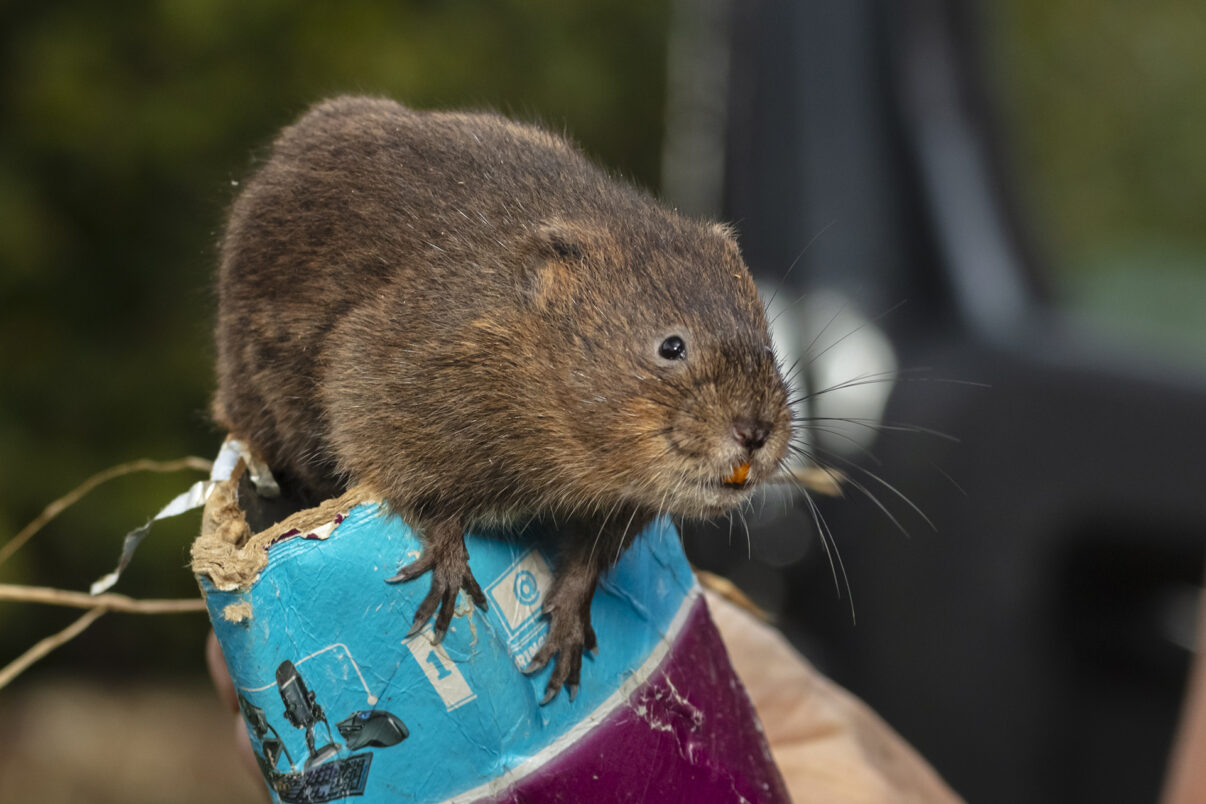
An endangered eco-engineer
Water voles are territorial, semi-aquatic rodents found in freshwater habitats across much of Europe and Asia. Despite their diminutive size (adults typically weight between 150 and 300g), they are considered keystone species, helping to create dynamic, healthy wetland habitat that supports numerous other species. By nibbling vegetation they create flower-rich banks with hugely increased plant diversity, while their burrows provide refuge and protected breeding sites for other small mammals, reptiles, and amphibians. The voles themselves are also key prey species for animals such as otters, stoats, owls and herons.
While the European water vole population is considered of “least concern” by the IUCN, its population in the UK is thought to have declined by over 90% since the 1970s, largely as a result of habitat loss and fragmentation, and predation by invasive American mink. In the county of Cornwall, in the southwest of the UK, water voles were considered to have become locally extinct in the late 1990s.
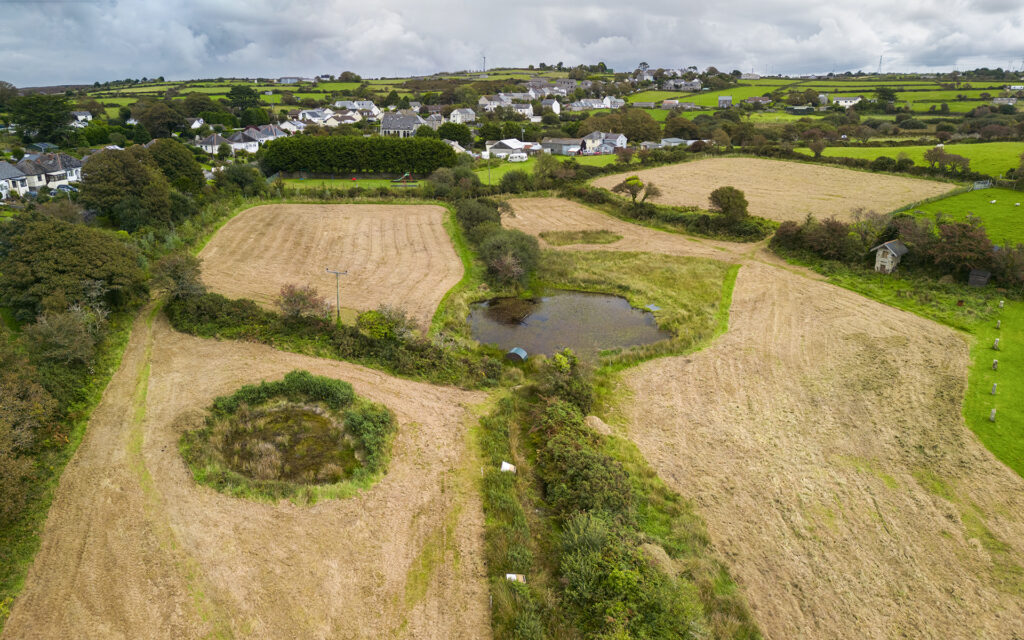
Rewilding to the rescue
Founded in 2019, Kernow Conservation is a community-led, non-profit organisation working in partnership with other conservation organisations, landowners, and local businesses to restore wildlife and biodiversity across the UK county of Cornwall. In September 2022, Kernow Conservation’s ongoing Water Vole Reintroduction Initiative saw 114 voles reintroduced to southern Cornwall for the first time, following a positive habitat suitability assessment and American mink monitoring (no signs of mink were detected). In June 2023, this was followed by a top-up release of around 80 voles in the same location. Images and camera trap footage show that these voles are doing well and becoming integrated into local food webs.
Kernow Conservation also work closely with local Cornish communities. They enable people to become more directly involved in rewilding through volunteering, and through partnerships with businesses and landowners. This is creating new momentum that will deliver increasing benefits to both nature and people.
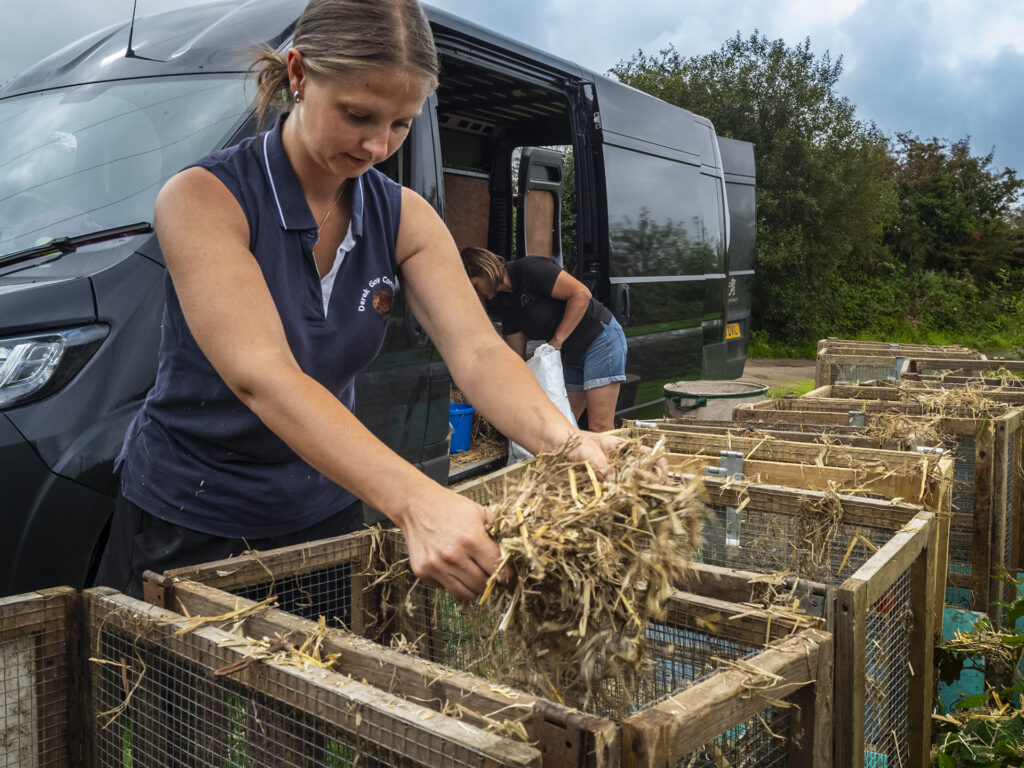
Beneficial exchange
In recognition of Kernow Conservation’s rewilding efforts, the European Rewilding Network has just admitted the NGO as its 90th member, with membership across 28 European countries. This will give those involved in rewilding access to the collective knowledge and skills of the entire ERN membership, and in return allow other ERN members to learn about and benefit from Kernow’s expertise.
“We’re really excited to be joining the network and the opportunity to learn more about other inspiring rewilding initiatives,” says Alana Scott, Kernow Conservation’s Executive Director. “A couple of years ago I actually interned with Rewilding Apennines in Italy, which was one of the best experiences of my life. We’re looking forward to meeting the other members and helping to advance rewilding across Europe.”
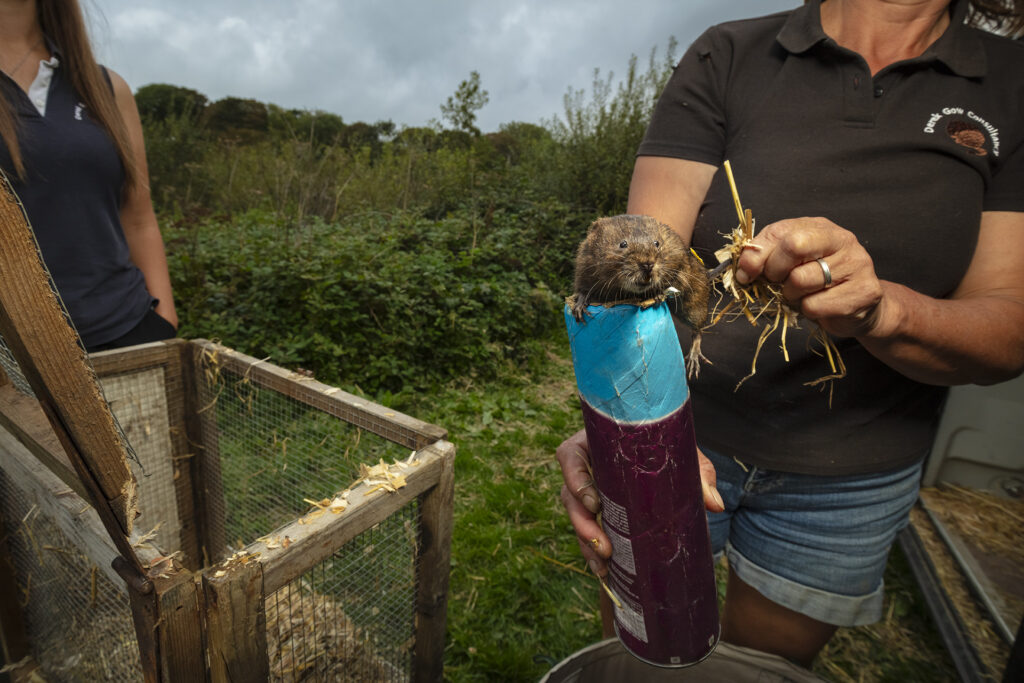
Financial support
Led by director David Carrier, Kernow Conservation’s water vole reintroduction efforts have also benefitted from a grant of 50,000 euros from Rewilding Europe’s European Wildlife Comeback Fund. The funding has just enabled a release of around 100 voles at a second site on private land in southern Cornwall, which also followed a positive habitat suitability assessment and American mink monitoring (again, no mink were detected). Among other things, the grant covered the cost of the voles, their transport and monitoring, and a top-up release scheduled for next June. Although many water voles die out in the winter, they tend to reproduce quickly, so this additional release should ensure a viable population is reached reasonably quickly.
“Applying for the grant was easy and quick,” says Scott. “The money really helped us move forward with our water vole reintroduction initiative, and to advance towards our goal of restoring populations of these important animals in as many parts of Cornwall as possible.”
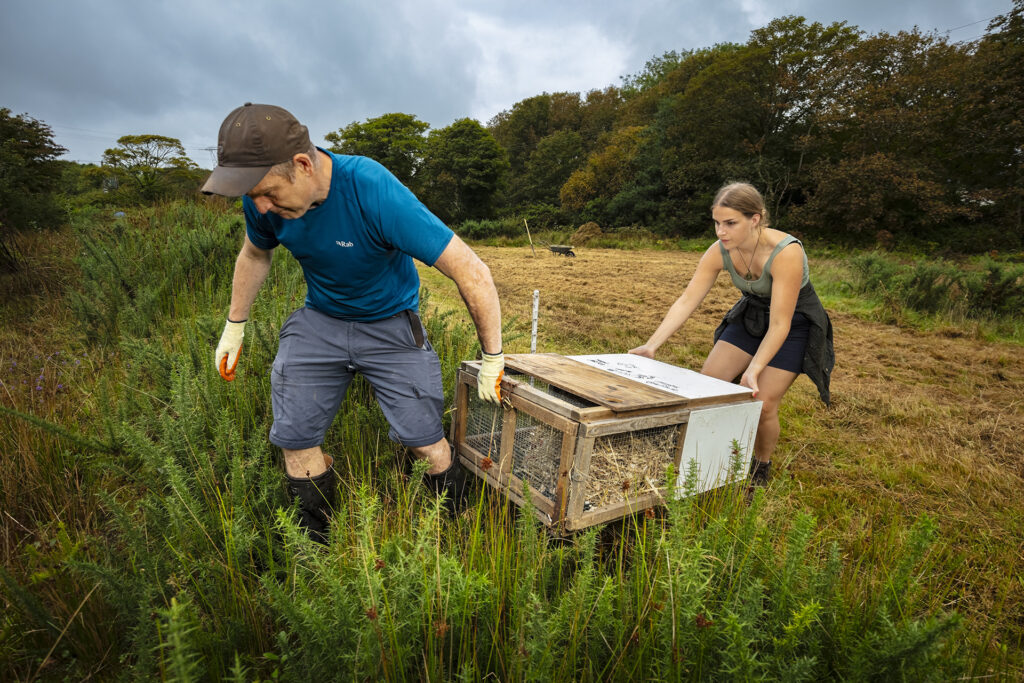
Influential fund
The aim of the European Wildlife Comeback Fund, which was established in 2022, is to scale up keystone species reintroduction and population reinforcement across Europe. Over the course of 2023 the fund is supporting a wide range of wildlife releases, with benefits for nature and people. All reintroductions must follow IUCN guidelines, which include the stipulation that the cause of the original extinction be identified and eliminated before the reintroduction goes ahead. The aim of the fund, which has already received 2.5 million euros from partners, is to facilitate at least 30 wildlife comeback interventions or initiatives through grant disbursement.
“We want to support the release of keystone species big and small,” says Rewilding Europe’s Rewilding Manager Sophie Monsarrat. “As is the case with beavers, water voles can have a positive impact on river ecosystems, and we are very happy to support Kernow Conservation in their efforts to rewild Cornish rivers.”
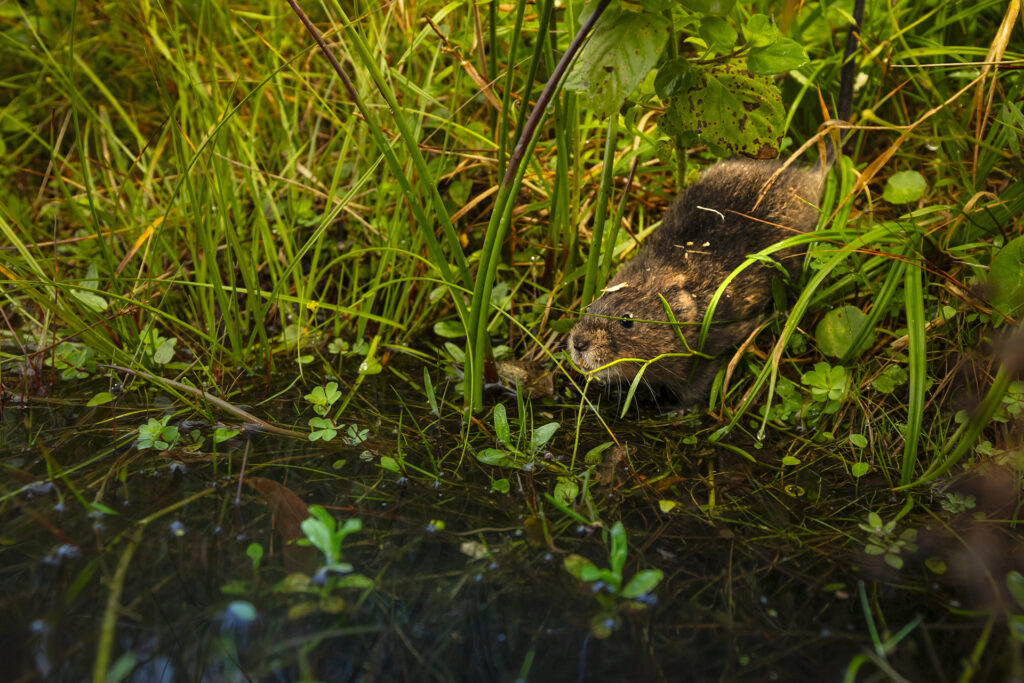
Let’s rewild together
The agile setup of Rewilding Europe’s European Wildlife Comeback Fund is designed to support wildlife comeback in a convenient and flexible way. Rewilding Europe invites other initiatives working to reintroduce keystone species in European landscapes to consider applying for an European Wildlife Comeback Fund.
Those interested in contributing to wildlife recovery in Europe can support wildlife comeback with an online donation. If you’d like to invest more than 50,000 euros in the European Wildlife Comeback Fund, we’d love to get in touch with you personally.
Rewilding Europe also extends a warm welcome to all European rewilding initiatives that focus on practical, result-oriented rewilding and encourages them to apply for European Rewilding Network membership.
